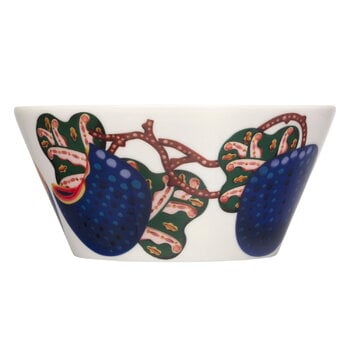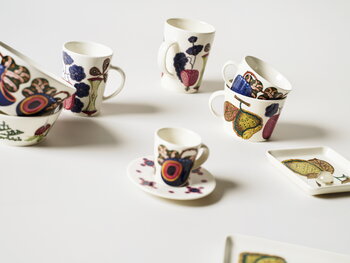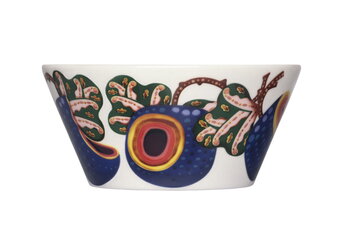The Taika Sato bowl from Iittala is decorated with a design by Klaus Haapaniemi, inspired by harvest time and Haapaniemi's own garden. Thanks to the lovely illustration, the small bowl can be used in both everyday and festive table settings – we recommend it for breakfasts or a serving of soup. This is also the perfect size for pick-and-mix!
In the Taika Sato series, introduced in 2024, Finnish artist Klaus Haapaniemi interprets garden fruits and vegetables in his distinctively rich and detailed style. The shapes and colours are intentionally abstract, leaving room for interpretation. In addition to his own garden, Haapaniemi drew inspiration for the illustrations from still-life art and botanical drawings, which adds a further layer of ambiguity to the designs. Instead of repetitive patterns, each item in the series is a unique individual, yet they fascinatingly complement each other. Named after two Finnish nouns, 'magic' and 'harvest', Taika Sato is sure to add a touch of harvest charm to all of your table settings.








